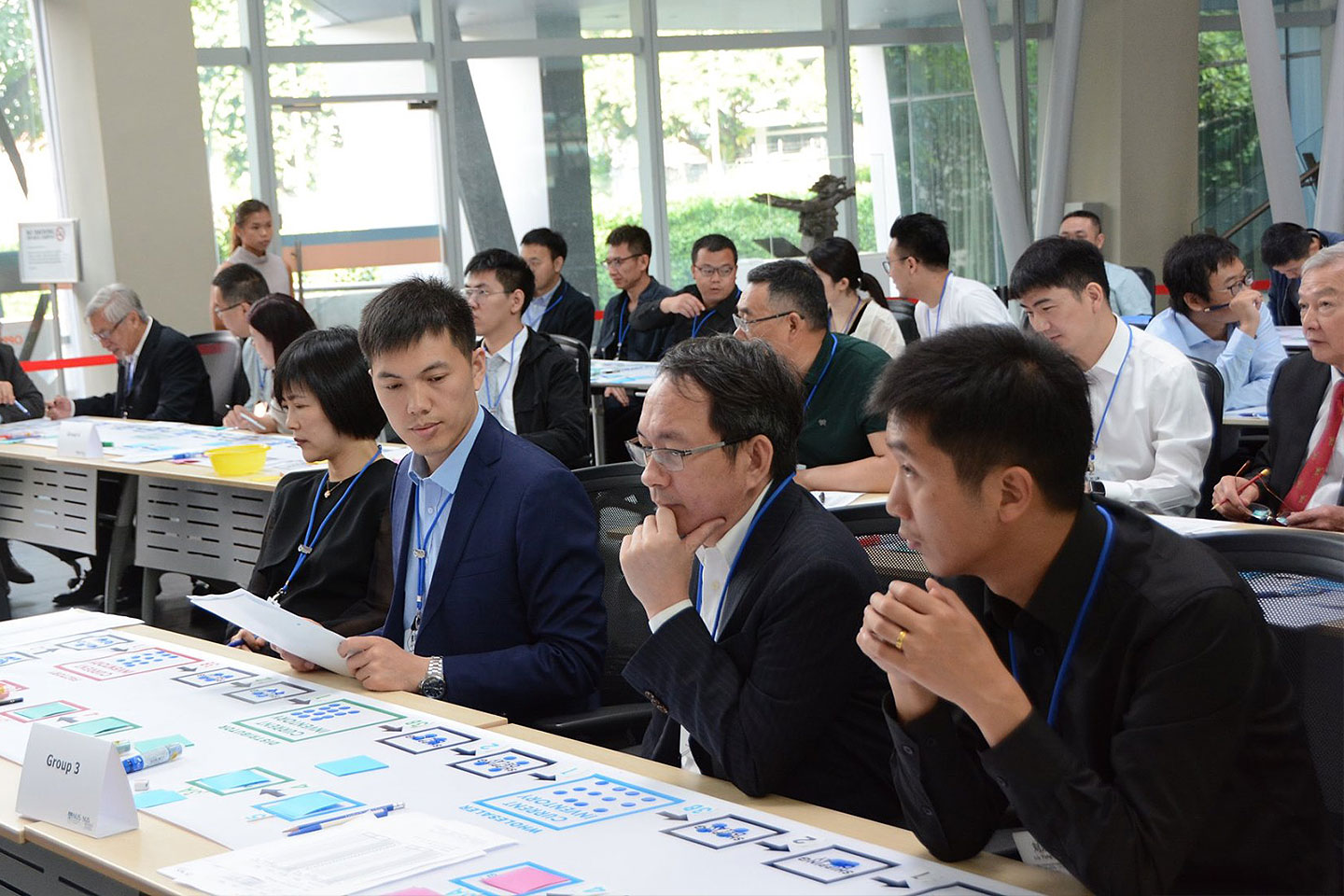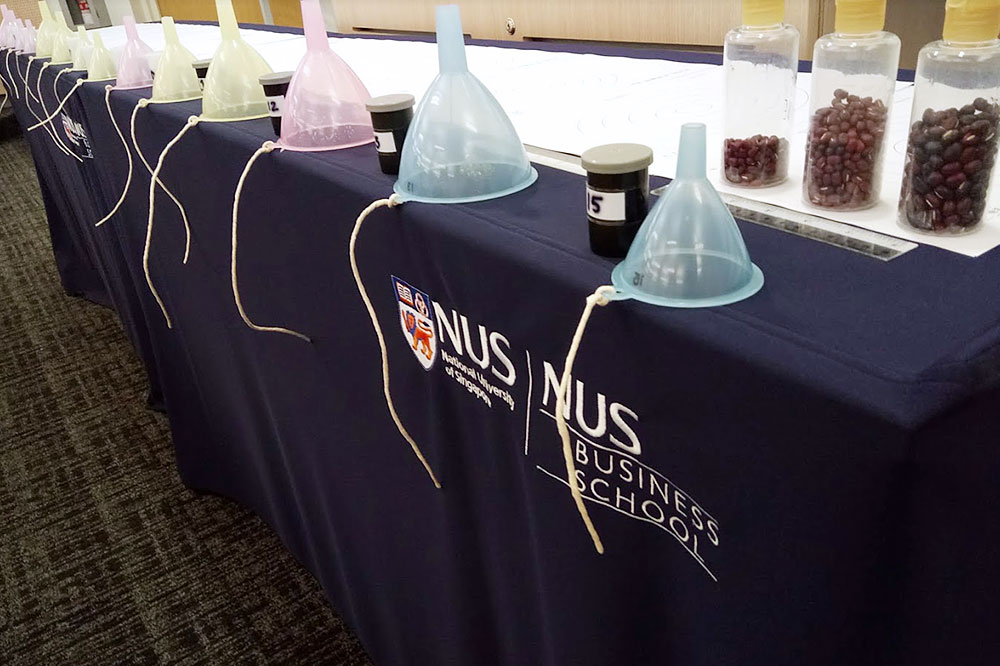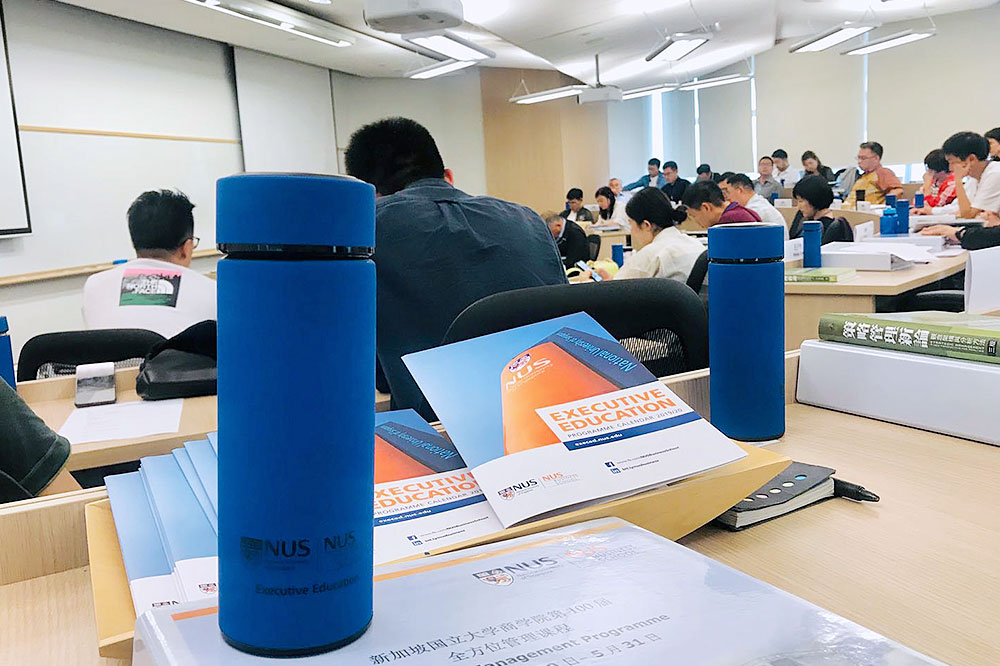At the General Management Programme (GMP) – Mandarin each year, instead of starting the class with theory, programme director Associate Professor Brian Hwarng puts the participants through a board game exercise called the Beer Game.
The Beer Game, originally from MIT, requires teams to role-play the retailer, wholesaler, distributor, and factory of a beer distribution system. The game simulates how the different entities of a system can work as a team with a shared goal in organisations, industries, and the economy.
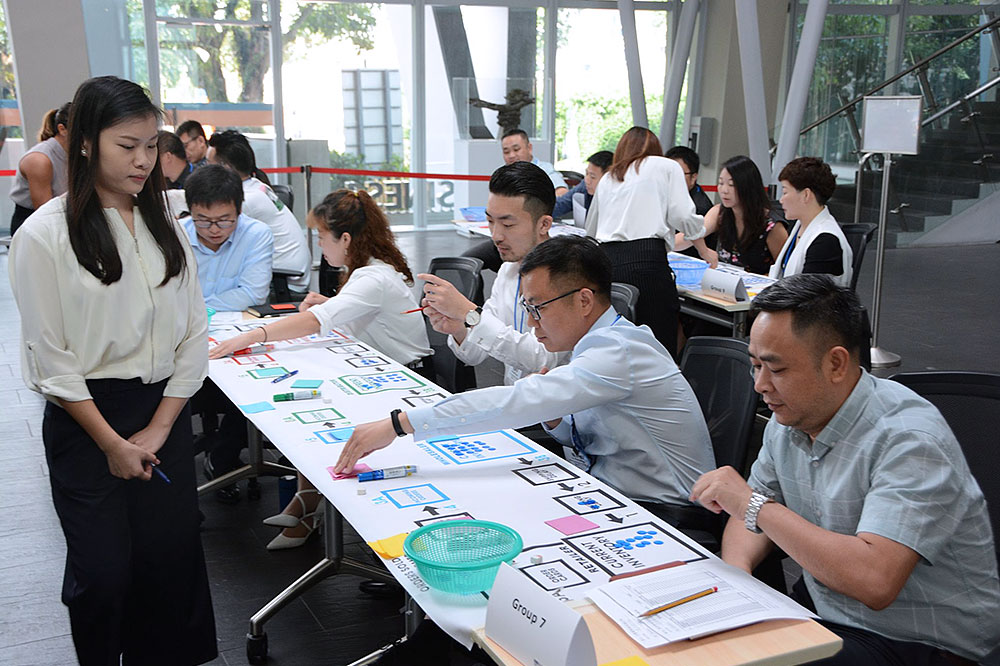
GMP – Mandarin participants playing the Beer Game
The game serves as a starting point for the 10-day programme, for executives. The aim, says Brian, is to let the players see how their teams’ behaviour and decisions impact other stakeholders within a system. “This game lets everyone see what the complexity of a system and the problems management could face,” he said.
At the end of the programme, Brian takes his participants through another game – the Expanded Funnel Experiment. This game involves teams dropping beans through different sizes of funnels on a target under various settings. The players have to mark where the beans land. The ultimate purpose is to show why organisations find it difficult to achieve excellence.
While the Beer Game is designed to highlight the management challenges, the Expanded Funnel Experiment aims to push executives to understand the role and responsibilities of a leader.
Both games are features of the GMP-Mandarin that help participants to see management issues from a practical standpoint.
“My class does not talk about theory first. I let the participants go through the experiment, where they will then reflect on where in the management process can be adjusted and improved,” said Brian, who has been leading GMP – Mandarin since 2003.
In its 100th edition this year, GMP-Mandarin teaches its participants to analyse and understand problems found during the management process.
The programme takes a holistic and systems approach to integrating various topical areas such as strategy, big data and platform economy, total budgeting and risk management, decision making and leadership.
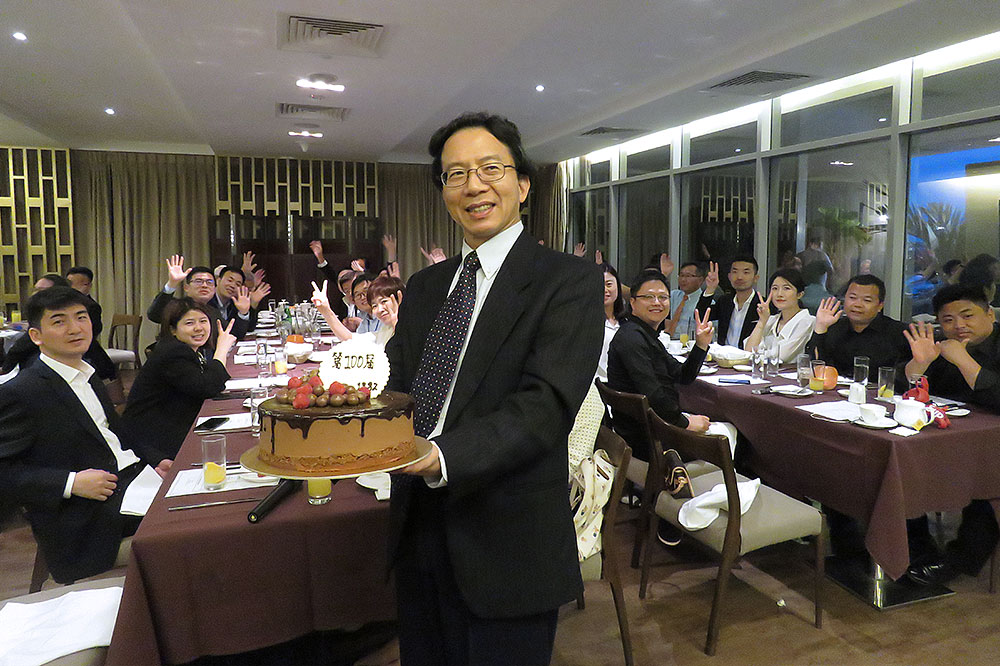
Assoc Prog Hwarng celebrates the 100th GMP – Mandarin programme at a dinner event
The programme first started in 1982 and was the first in the region to teach business management in Mandarin, offering insights into improving management skills to Chinese-speaking managers and entrepreneurs.
One of the more notable companies to send staff to join the programme was Taiwan’s Feng Tay Enterprises, one of the largest R&D and manufacturers for US sports giant Nike. Its current president was an early participant of GMP – Mandarin.
Nearly 40 years after launching, today the programme is seeing more participants from growth-hungry companies from China, among them is electrical giant Midea Group.
For many participants, taking the GMP – Mandarin programme has opened doors to other programmes within NUS Business School. For example, after completing GMP – Mandarin, impressed executives went on to take the School’s Executive MBA Chinese, says Brian.
Over the years the programme’s teaching content has gradually evolved, he says. For example, his own topics has progressed from more theoretical and tactical to a more practical and strategic level. Through case studies such as how restaurant chain Din Tai Fung manages its international growth participants learn how organisations from different backgrounds achieved their transformational goals.
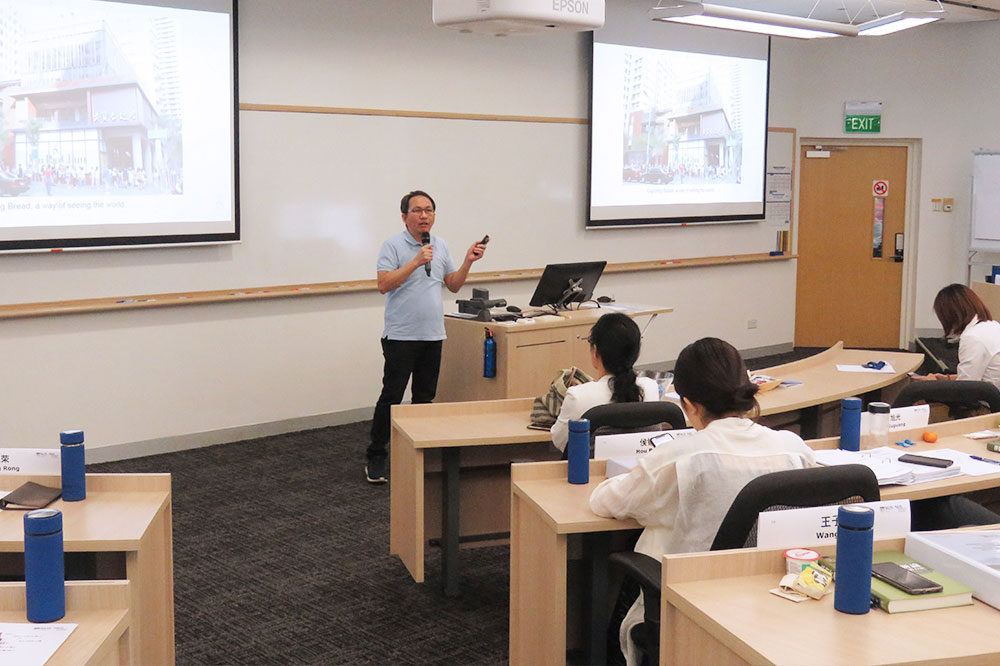
Celebrity chef Wu Pao Chun, who is participating GMP – Chinese, shares his management experience at Wu Pao Chun Bakery
People from start-ups to state-owned enterprises attend the programme, with senior managers and executives rubbing shoulders with company founders. The oldest participant of the current GMP – Mandarin is a 73-years old Singaporean entrepreneur.
According to Brian, one of the key strengths of GMP – Mandarin is its class diversity which facilitates an exchange of ideas and allows participants to experience different perspectives.
Looking ahead, Brian says the programme will help guide future participants to leverage on the benefits (quality, stability and productivity) of technology.
“It will be even more participant-based and action-oriented than before,” he says.



